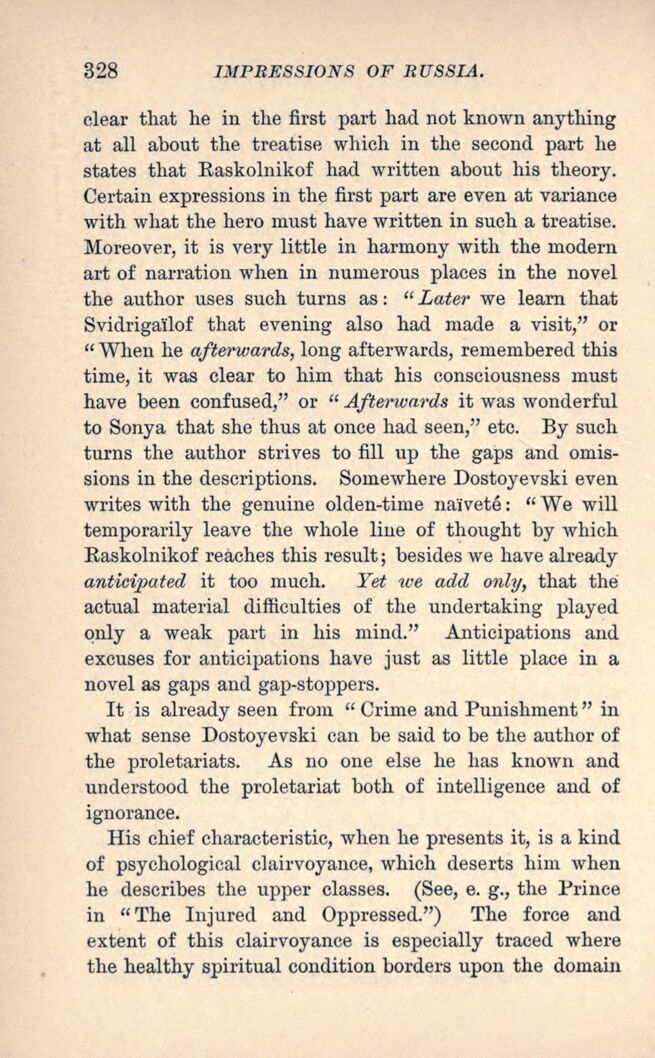
Full resolution (JPEG) - On this page / på denna sida - Impressions of Russian Literature - VI

<< prev. page << föreg. sida << >> nästa sida >> next page >>
Below is the raw OCR text
from the above scanned image.
Do you see an error? Proofread the page now!
Här nedan syns maskintolkade texten från faksimilbilden ovan.
Ser du något fel? Korrekturläs sidan nu!
This page has been proofread at least once.
(diff)
(history)
Denna sida har korrekturlästs minst en gång.
(skillnad)
(historik)
clear that he in the first part had not known anything
at all about the treatise which in the second part he
states that Raskolnikof had written about his theory.
Certain expressions in the first part are even at variance
with what the hero must have written in such a treatise.
Moreover, it is very little in harmony with the modern
art of narration when in numerous places in the novel
the author uses such turns as: “Later we learn that
Svidrigaïlof that evening also had made a visit,” or
“When he afterwards, long afterwards, remembered this
time, it was clear to him that his consciousness must
have been confused,” or “Afterwards it was wonderful
to Sonya that she thus at once had seen,” etc. By such
turns the author strives to fill up the gaps and
omissions in the descriptions. Somewhere Dostoyevski even
writes with the genuine olden-time naïveté: “We will
temporarily leave the whole line of thought by which
Raskolnikof reaches this result; besides we have already
anticipated it too much. Yet we add only, that the
actual material difficulties of the undertaking played
only a weak part in his mind.” Anticipations and
excuses for anticipations have just as little place in a
novel as gaps and gap-stoppers.
It is already seen from “Crime and Punishment” in
what sense Dostoyevski can be said to be the author of
the proletariats. As no one else he has known and
understood the proletariat both of intelligence and of
ignorance.
His chief characteristic, when he presents it, is a kind
of psychological clairvoyance, which deserts him when
he describes the upper classes. (See, e. g., the Prince
in “The Injured and Oppressed.”) The force and
extent of this clairvoyance is especially traced where
the healthy spiritual condition borders upon the domain
<< prev. page << föreg. sida << >> nästa sida >> next page >>